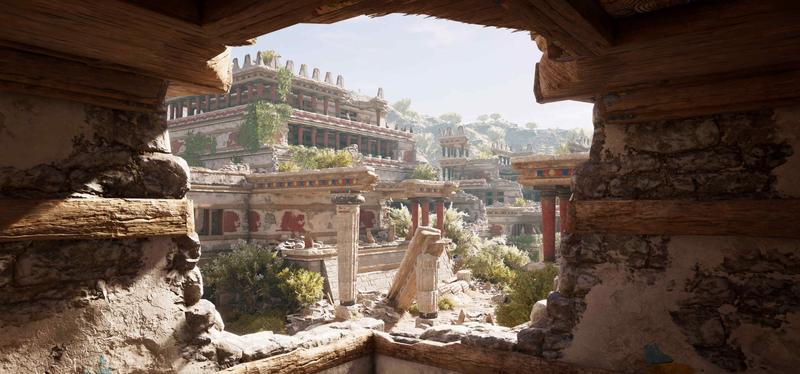Creative industry collaboration with academia is a well-established tradition and it can take a wide variety of forms; DiSc and our colleagues in TORCH had the opportunity to showcase some fantastic examples of these partnerships between academia and the video games industry. In a hybrid panel and networking event in March, attendees gathered in Oxford and on Zoom to hear representatives from game companies Ubisoft and FuturLab, as well as academics from Oxford and beyond, talk about their experiences and the outcomes of their collaborations. Organised by DiSc, our colleagues from The Oxford Research Centre in the Humanities (TORCH) and Dr Jack Orchard (Electronic Enlightenment, Centre for Digital Scholarship), the panel gave short talks that introduced each individual collaboration, and followed this with audience questions.
Professor Andrew Pryzbylski, Professor of Human Behaviour and Technology at the Oxford Internet Institute, University of Oxford, spoke alongside James Butlin from FuturLab games. Professor Pryzbylski has research interest in links between video games, motivation and well-being, and has worked with the game company on research into mental health and video games; FuturLab worked on an overlay that was available to players as an option when opening their copy PowerWash Simulator, which asked players to answer questions about how they felt as they played the game. The resulting dataset will be hugely valuable in their research.
Professor Andrew Shapland is the curator of the Ashmolean exhibition Labyrinth, for which he worked in collaboration with Ubisoft to make use of a reproduction of the labyrinth at Knossos from the video game Assassin’s Creed. He was joined by Amy Jenkins and Romain Fasciale from Ubisoft, who provided the game development perspective. Amy and Romain joined us from the Ubisoft Strategic Alliances team. It was a great opportunity to hear from both perspectives on the process of building an exhibit, and the considerations behind reconstructing and fictionalising history from the perspective of a games company.
Dr Terhi Nurmikko-Fuller, a (Senior Research Fellow, ANU and Gale Fellow) spoke about her experiences of using games in teaching, and how they enable students to explore and structure ideas by applying concepts from games to cultural heritage, collections and humanities questions.
At the end of the presentations, in-person attendees spent some time networking and discussing the panel and subject.
This pilot session had provided a rare chance to draw attention too and discuss this emergent form of collaborative project, and attendees called it “engaging”, as well as “productive for thinking about impact and research”.
Building networks like this across the university to bring together researchers and create connections is something DiSc is always working towards, so if you have something similar you would like to showcase at a future event please let us know!
If you have questions about this or any other DiSc events, please feel free to contact the team on digitalscholarship@humanities.ox.ac.uk.
The Ashmolean’s Labyrinth exhibition is open now.
The FuturLab OII study has closed to new participants, but to find out more please see here and here.

Video still from Assassin’s Creed Odyssey © Assassin’s Creed™ & © Ubisoft Entertainment. All Rights Reserved